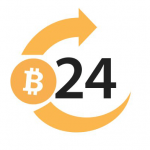Today, I will be explaining what Crypto Cloud Mining is all about.
Because the cryptocurrency industry has proven to be a lucrative enterprise, many persons are venturing into crypto mining.
But not all can afford the equipment needed to mine theses cryptos not to talk of the electricity and maintenance costs.
This is where crypto cloud mining steps in, giving you the opportunity to benefit from mining without owning mining hardware.
In this post, you will learn all about crypto cloud mining, how it works, and the pros and cons of engaging in crypto cloud mining.
All set to roll?
Let’s get at it immediately.
Summary of Post
I will be discussing today’s post under these listed subheadings:
- What is Crypto Cloud Mining?
- Types of Consensus Mechanism
- Crypto Cloud Mining Companies
- Models of Crypto Cloud Mining
- How to Calculate Your Mining Profit
- Pros and Cons
- Conclusion
Clicking on any subheading takes you to where its details are.
Let’s meet up in the next section.
Before we start, we have launched a Crypto Trading School – Afibie, where you can learn how to trade crypto profitably from professionals.
What is Crypto Cloud Mining?
Simply put, Crypto Cloud Mining is the process of taking part in cryptocurrency mining without owning a miner. This is done by using a remote datacenter with shared processing power.
Crypto Cloud Mining performs 2 functions:
- Adding transactions to the blockchain after verifying it
- Releasing new currency
Satoshi Nakamoto, the founder of Bitcoin, mined the first block on January 3, 2009.
This added the very first block known as the Genesis block to the blockchain and was a single transaction with a reward of 50 new Bitcoin to its creator.
Crypto cloud mining is capital and resource-intensive as a lot of difficulties are encountered during mining.
Some of the difficulties include the high cost of electricity, cooling systems, and maintenance.
Other nodes verify the proof each time they receive a transaction before considering a block valid.
Scroll down to read about that.
Types of Consensus Mechanisms
Blocks are generated by a Consensus Mechanism.
Wondering what this means, right? Let me explain.
Blockchain and computer systems use consensus mechanisms to achieve agreement on a single state of the network among multiple agent systems or distributed processes.
It synchronizes all the nodes with each other and ensures they agree on which transactions are valid, which are then added to the blockchain.
We have different types of consensus mechanisms which work on various principles:
Proof of Work(PoW)
In this, the amount of computational work done by the miner determines the probability of mining a new block.
It is a consensus algorithm used by popular cryptocurrencies like Bitcoin and Litecoin.
This mechanism requires high energy consumption and a longer processing time.
Proof of Stake(PoS)
Validating a new block here is depends on how large of a stake(coins) the miner holds.
Cryptocurrencies like DASH and NEO use PoS. This mechanism requires less energy and cost when compared to PoW.
Proof of Importance(PoI)
Here, the possibility of the addition of a new block is determined by the higher score possessed by a node. Nodes are evaluated based on metrics such as the net transfer, the number of vested coins, e.t.c. An example of a cryptocurrency that uses PoI is XEM.
Proof of Capacity(PoC)
This mechanism allows the sharing of memory space of the nodes that are contributing to the blockchain network.
The more space a node has on its hard disk, the more rights are granted to it to maintain the public ledger. A cryptocurrency that uses this is BHD.
Proof of Elapsed Time(PoET)
In this, each node is assigned a random amount of time to wait.
The first node to finish waiting gets to commit the next block to the blockchain.
Proof of Authority(PoA)
Unlike in PoS where nodes stake monetary value, PoA stakes the actual identity of the nodes.
The PoA blockchain is secured by the validating node that is arbitrarily selected as a trustworthy entity.
Similarly, there are other consensus mechanisms such as Proof of Burn, Delegated Proof of Stake, Directed Acrylic Graph, e.t.c.
But who does this crypto cloud mining? Mining companies!
So next, I will be discussing and listing the different mining companies.
Continue reading.
Crypto Cloud Mining Companies
Crypto cloud mining companies are sites that you pay a fee to mine cryptocurrencies for you.
These companies mine the cryptocurrencies and share the mining profit with you.
These companies mine cryptocurrencies using ASIC(Application Specific Integrated Circuit) such as Antminer S9, Antminer R4, e.t.c.
To take part in this, the individuals need to sign up with these companies and purchase mining contracts for a stated amount.
In this way, they get daily payouts from the company.
These payouts can increase or decrease depending on the price of the mined cryptocurrency in the market and the mining difficulties encountered.
The rigs for mining are kept and maintained in a facility owned by the mining company.
How It Works
Apart from the stated mining contract payment that you have to make, these companies charge other fees like the maintenance cost, electricity cost, cooling and storage costs,e.t.c.
These costs are charged in fiat currency per mining unit. For example, $1.5/TH is charging you 1.5 in dollars for each tetra hash mining power.
These costs are deducted before sending you your daily payout.
These daily payouts are either paid out daily or accrued in a wallet until it reaches a specified threshold before been paid out to your personal wallet.
Now, since the costs are paid in fiat while most mining payout is accumulated in Bitcoin, any change in the price of Bitcoin affects your daily payout.
Examples of such companies are:
Find more details on the companies in the table below.
Helpful tips: When selecting a crypto cloud mining company, check out these 4 parameters:
- Time – Check out how long the company has existed. For a company to still be in business for quite some time in the crypto cloud mining market, it has to be legit.
- Publicity – Check out blogs, photos, news for concerning the company, its owner(s), employees and equipment.
- Capacity – Look up the number of active users.
Above all, be careful where you invest your money.
The good news is that we have done a review of the top 7 Reputable cloud mining companies to make it easier for you.
Types of Crypto Cloud Mining
There are 3 types of Cloud Mining:
Virtual Hosted Mining
Virtual hosted mining involves installing your mining software in a mining company’s rig.
This is done by creating a VPN(Virtual Private Network).
Leased Power Mining
In Leased power mining, you will purchase an amount of hashpower/rate that is used by the company.
**Hashpower/rate is the speed at which a miner solves or completes an operation. A higher hashpower/rate is better for mining as there is an increased opportunity of finding the next block and receiving the reward.
This will be used to mine for you.
Hosted Mining
Hosted mining involves the leasing of a machine that is owned by a mining company.
Having seen the types of crypto cloud mining, I will be discussing how to calculate your profit next.
Keep reading to the end.
How to Calculate Your Mining Profit
Calculating the profitability of crypto cloud mining is sometimes a tricky task to accomplish.
This is due to factors like electricity and maintenance charges and especially mining difficulty.
But thankfully, most cloud mining service providers have a web-compatible mining profit calculator such as CoinWarz,e.t.c.
This calculator most times already has all the charges and parameters inputted beforehand.
You only have to input how much you wish to invest or the amount of hashing power you wish to lease.
The calculator then calculates your daily profit based on your investment taking into consideration the parameters involved.
This gives you an idea of what your daily payout will be.
So what are the benefits and pitfalls of this crypto cloud mining?
Just scroll down to find out.
Pros and Cons of Crypto Cloud Mining
Pros
- A cooler home
- No added electricity cost
- Daily payouts
- Passive income source
- Highly affordable
Cons
- Loss of capital(to scam sites)
- Low-profit margin
- Non-transparent mining activities
Learn How To Trade
If you want to learn how to trade cryptocurrencies profitably, sign up for free on Afibie.
You can join our Telegram channel, where we hold live sessions and give trade signals.
Conclusion
When engaging in any type of cryptocurrency mining, there is always a risk to take.
But profitability is very possible if you take the right steps and make the right decisions.
As I mentioned earlier, there is a high probability of fraud and mismanagement in the mining space.
Never invest in any venture without, first of all:
- checking out the risks involved
- ascertaining its genuineness to an extent
With that, I come to the end of this post that hands out crypto cloud mining on a platter.
So far through your reading, is there any confusing thing you’ll want to be cleared on?
Have you been involved in crypto cloud mining before and how did it go?
Or you’re just a newbie yet undecided on the mining company to invest with?
Well, whichever it is, let me know in the comment section below.
And as usual, hit the share buttons as soon as you read the last word.










Great work! However, from a Nigerian perspective, do you think cloud mining is profitable?
compared to what you can make through trading, it’s not. however, trading is riskier
Hello I’m interested in Bitcoin but there is a lot I still don’t understand. Are cyptos having any physical investments? I thought this digital currency is purely virtual
Nice one. Thank you Nigeria Bitcoin Community!
Thank you